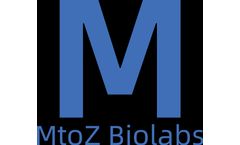Tumor Specific Antigenic Articles & Analysis
11 articles found
Understanding Radioactive Drug Conjugates Radioactive drug conjugates are engineered to deliver radiation directly to cancer cells while sparing healthy tissues. This specificity is achieved by linking a radioactive isotope to a monoclonal antibody or small molecule that targets specific cancer antigens. ...
The firm develops monoclonal antibodies that target tumor-specific antigens through the services. This method shows potential for better patient response rates while simultaneously enabling the detection of tumor progression and resistance mechanisms. ...
In the environment of cancer, antigens may be specific to tumor cells and are known as tumor-specific antigens (TSAs) or tumor-associated antigens (TAAs). ...
Their monoclonal antibodies, linkers, linker-cytotoxin molecules, and newly introduced antigenic epitopes may all have immunogenicity. This makes the immune response induced by ADC drugs more complex. ...
Targets can be divided into tumor-specific antigens (TSA) and tumor-associated antigens (TAA) according to their expression. Antigens that are only expressed in tumor cells but not in normal cells are tumor-specific antigens and ...
This suggests that the expression of mesothelin and its relationship with prognosis and aggressiveness are tumor-specific. The interacting protein of mesothelin is CA125/MUC16, a member of the mucin family, which is expressed in ovarian cancer and malignant mesothelioma. ...
TCR-engineered T cells express tumor antigen-specific receptors with alpha and beta chains generated from high-quality, high-affinity clones of antigen-specific T cells. ...
The researchers expose us to a radically different way of thinking in this article: instead of working on T cells, they focus on changing cancer cell antigens. They employed antibodies to deliver viral antigens to the tumor location and trigger virus-specific T lymphocytes to target cancer cells, destroying them. ...
In the study, the researchers propose a new method that mainly involves extensive screening of monoclonal antibodies against primary human tumor samples with the aim of identifying cancer-specific conformational epitopes throughout the protein that cannot be identified by transcriptome or proteome analysis. ...
Antibody engineering has progressed drastically over the last ten years, allowing for more site-specific coupling and enhancing ADC homogeneity and stability. With the goal of improving therapeutic efficacy and safety, new second and third generation ADCs have entered the clinic. ...
Gene-modified cell therapies (GMCTs) represent the most effective therapeutic platform for many patients with advanced diseases including relapsed and refractory leukemia, non-Hodgkin lymphoma, and other blood cancers [1]. Specifically, chimeric antigen receptor T cell (CAR-T) therapies targeting CD19 have demonstrated remarkable responses and possibly cures in patients with advanced acute ...






